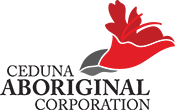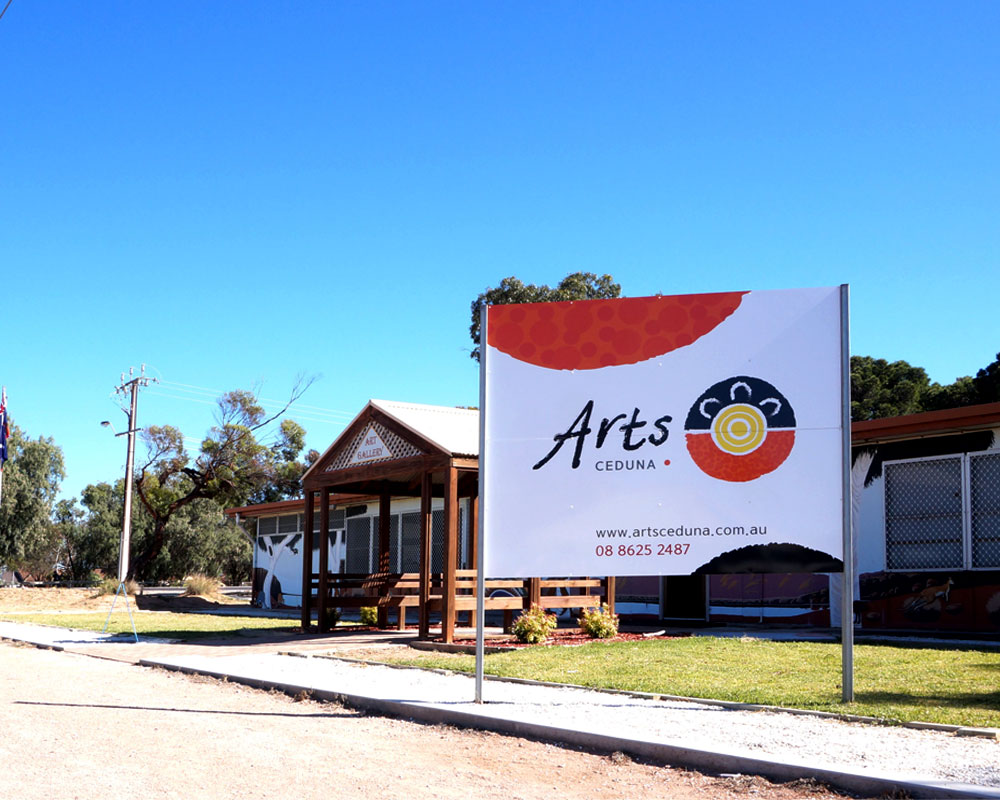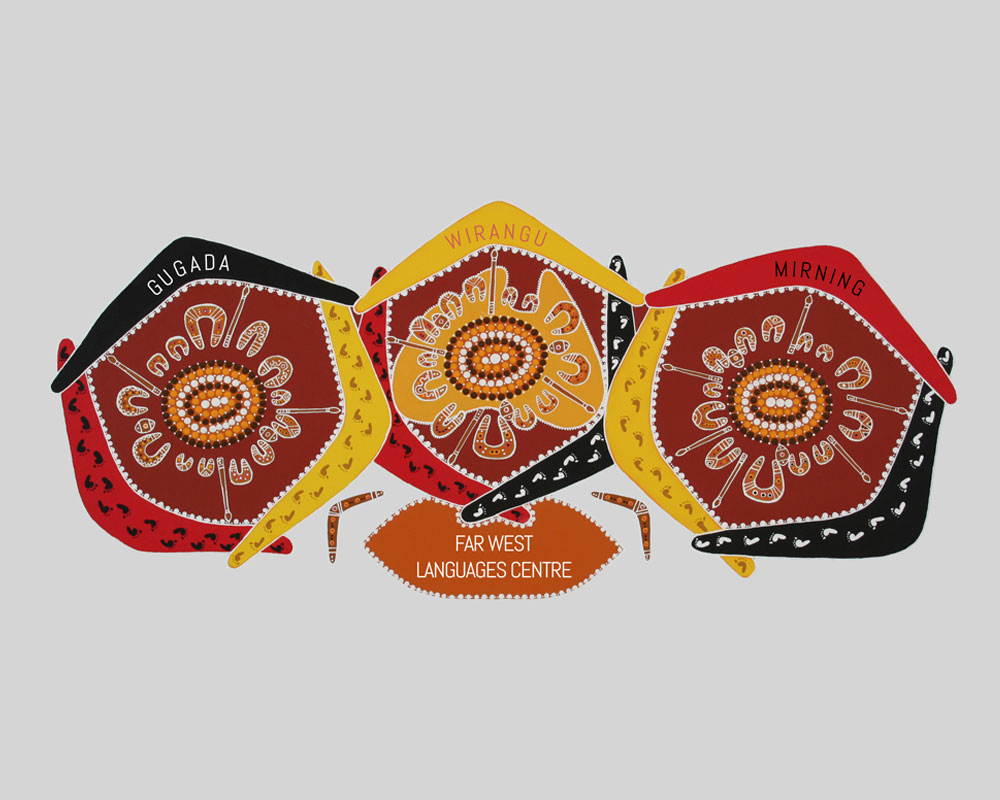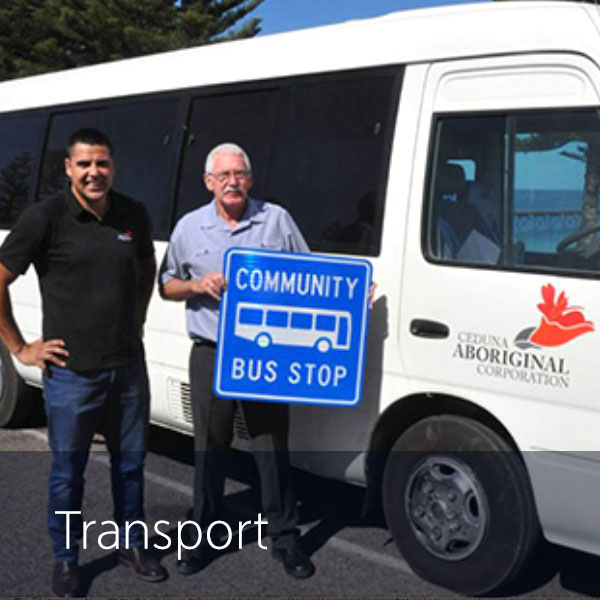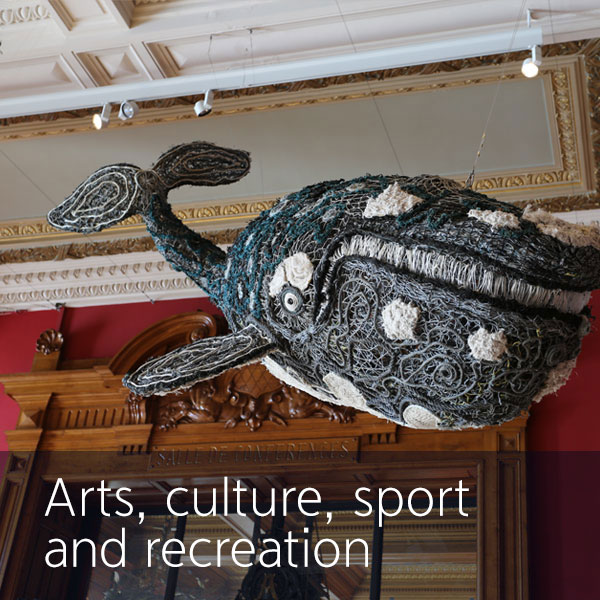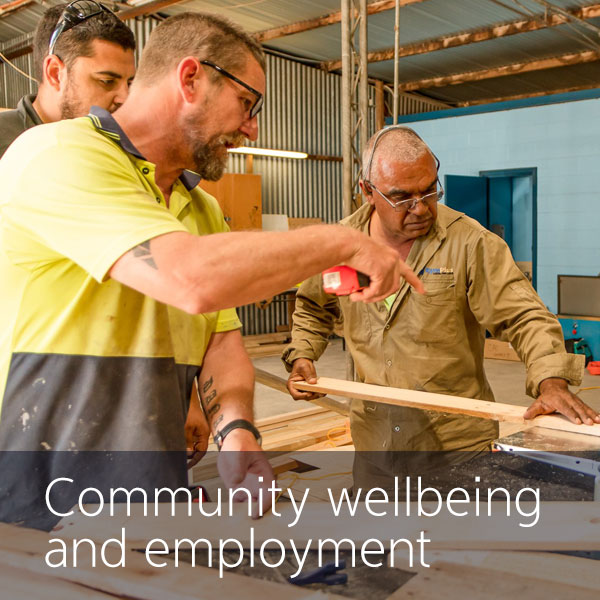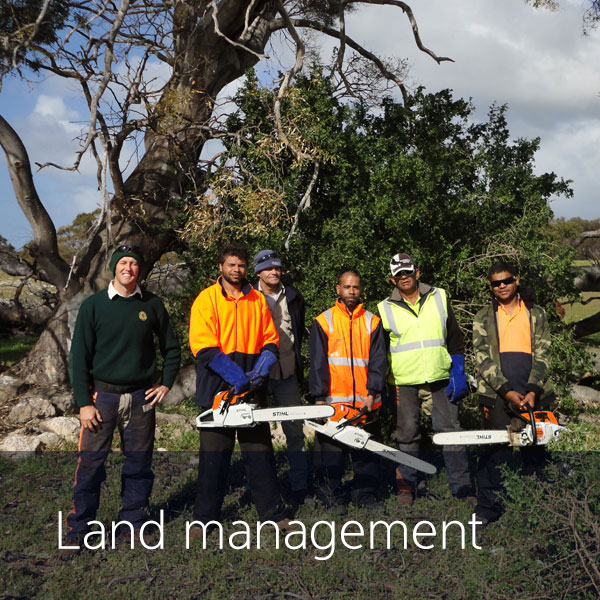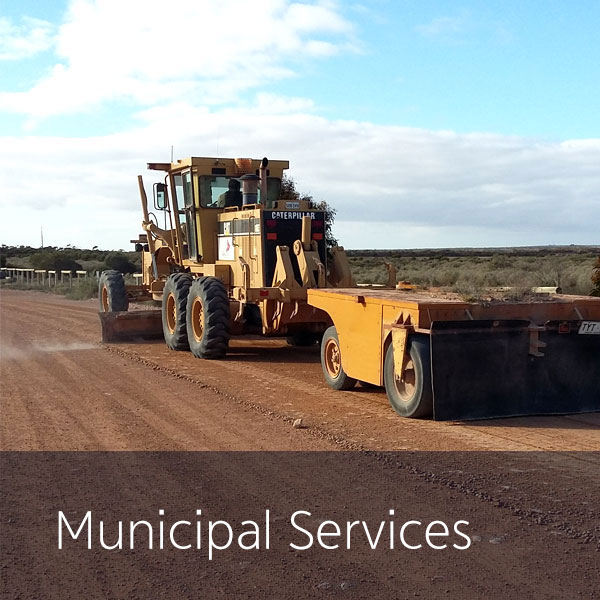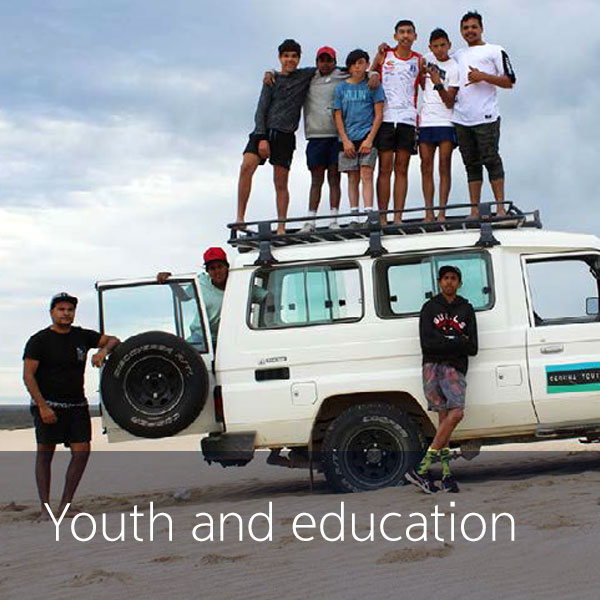Arts Ceduna
Arts Ceduna, situated at the Ceduna Arts and Culture Centre (CAACC), sells artwork on behalf of over 136 artists in the Far West region of South Australia.
Opened in July 2001, Arts Ceduna provides economic and artistic development opportunities to artists, for work across mediums including paintings, lino prints, artifacts, ceramics and bush medicine.
Initiatives and services to artists include the provision of high-quality materials, training, artist residencies and safe working environments and facilities that encourage artists to produce, develop, promote and sell Aboriginal visual arts.
Arts Ceduna continues to initiate positive outcomes for all Aboriginal artists of the far West, including new economic, skills development and community cultural development opportunities. Initiatives and services to artists include the provision of high quality materials to artists, training, artist residencies and safe working environments and facilities that encourage artists to produce, develop, promote and sell Aboriginal visual arts.


Artists from the Far West Coast of South Australia are strongly influenced by their environment. Artists have strong connections to Country. To the west of Ceduna the vast plains of the Nullabor inspire artists’ work, while the area north of Ceduna boasts the largest untouched virgin mallee and spinifex country to the south the pristine waters of the Great Australian Bight and to the east ancient rock formations such as the Gawler Ranges. This diverse cultural environment of land, sea and desert is reflected strongly in the work of the artists.
Far West Languages Centre
The Far West Languages Centre was established in 2006 and is one of only two Aboriginal languages centres in South Australia.
We assist local and surrounding Aboriginal communities to revive and restore their endangered languages – Wirangu, Gugada and Mirning – and to maintain the Southern Desert Languages of the region.
We support work to record languages; develop resources; bring archival materials back on-country for easy community access; engage community; increase fluent speaking; deliver formal and informal training and development; and promote language immersion and getting back on-country with language camps and cultural activities.
The Centre has played a key role in community attempts to reverse the decline of fluent speaking of the local languages, and it is recognised across the community and region for this work.
FWLC / History
The Far West Languages Centre was established in 2006 in a purpose built annex to the Ceduna Aboriginal Arts & Culture Centre with funding provided by the Department of Communication, Information Technology and the Arts (DCITA). The Language Centre has played a key role in community attempts to reverse the decline of fluent speaking of the local languages, and it is recognised across the community and region for this work.

FWLC / Mission
The Far West Languages Centre initiates and supports the people of the Far West Coast to become empowered by knowing, understanding, speaking and celebrating in their languages, and to reconnect to Our Cultural Heritage and Country through our Languages.
At present our focus is on researching, restoring, maintaining, documenting and reviving the endangered languages of the Far West Coast peoples in and around the Ceduna regions, being Gugada/Kokatha, Wirangu and Mirning.
Sports and recreation
Sports and recreation is a vital part of life and something our community has identified as an important need. We promote the importance of regular daily activity for a healthy lifestyle. Our work involves initiating, delivering and support activities to increase participation by our local Aboriginal people.
The Sport and Recreation Program has regular community members participating in our activities, but we encourage more people to come and give the activities a try and offer constructive feedback.
Focus Areas:
Activities:
Activities are subject to change due to weather, seasons changing and access to facilities. However, we endeavour to keep regular activities weekly and offer other ‘come and try’ sessions to the community. Keep an eye out for flyers with updates on activities and events.
